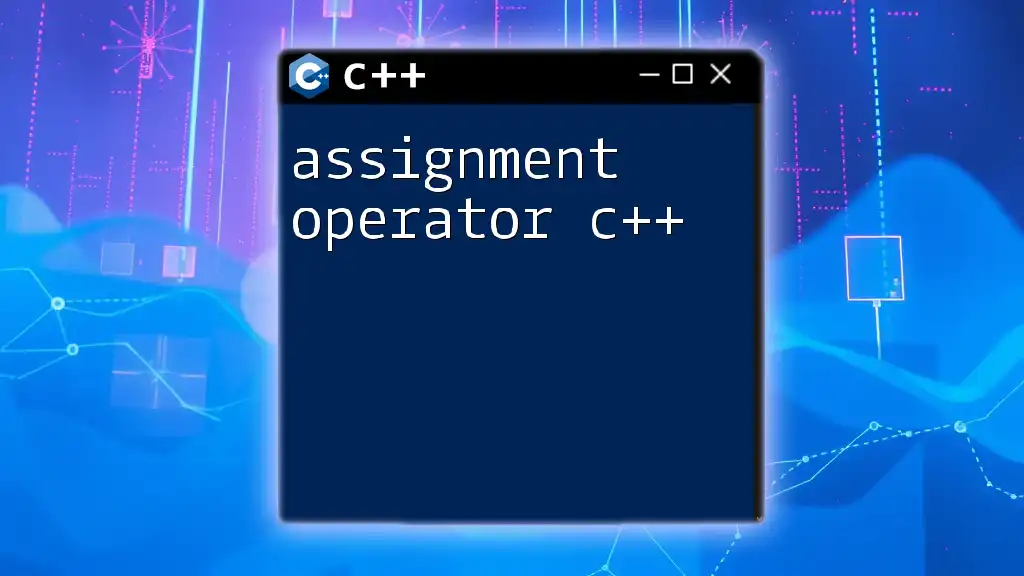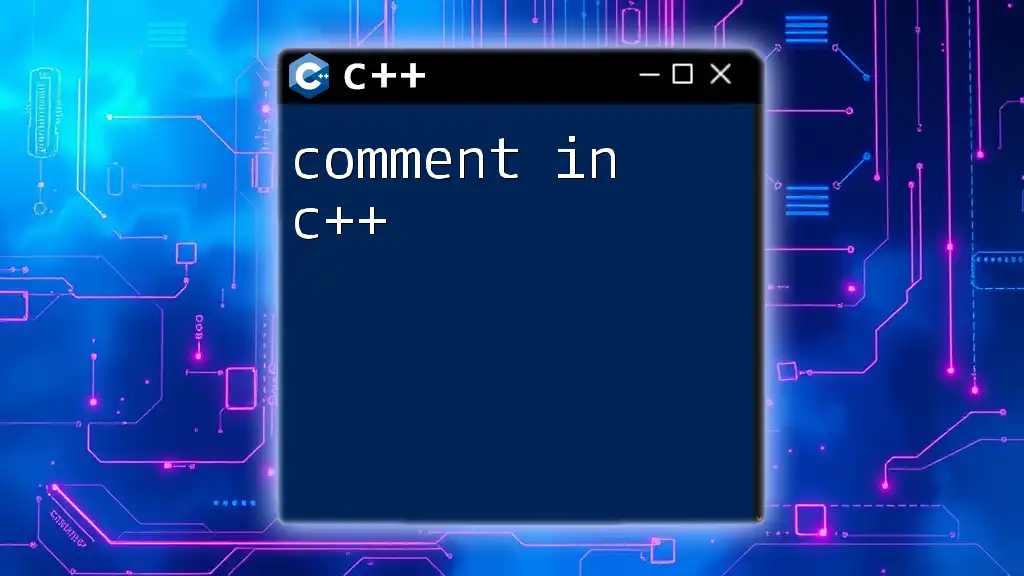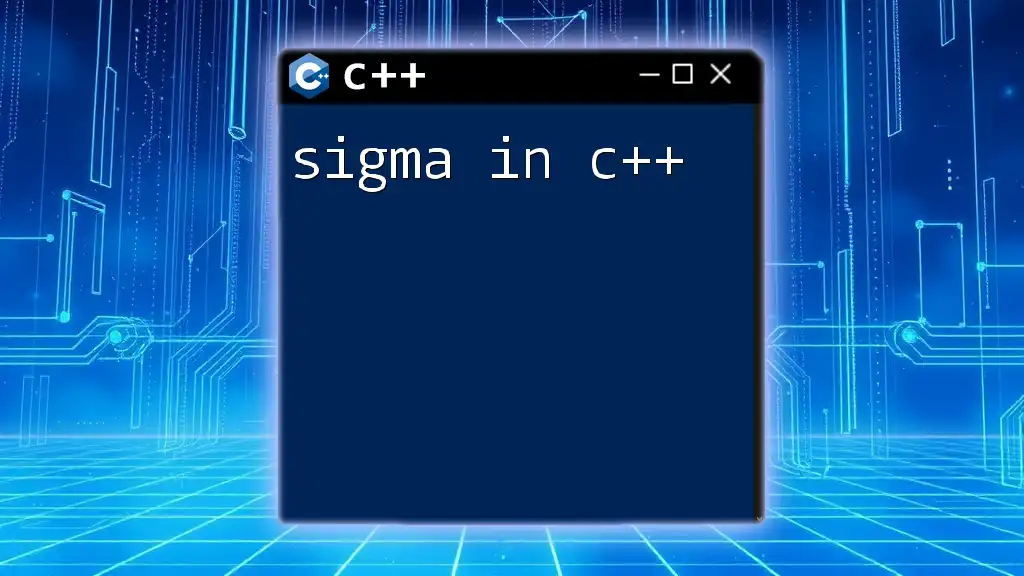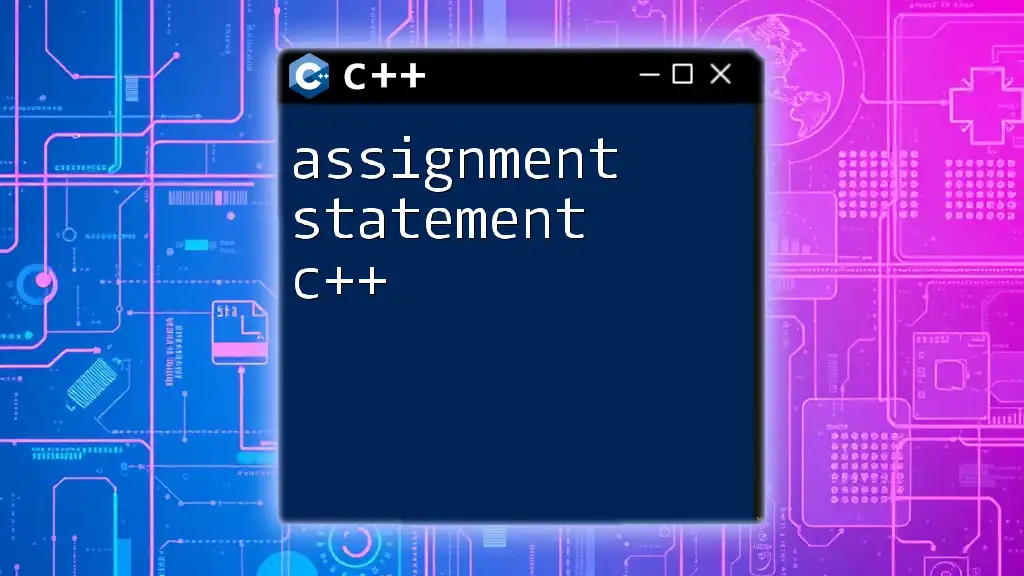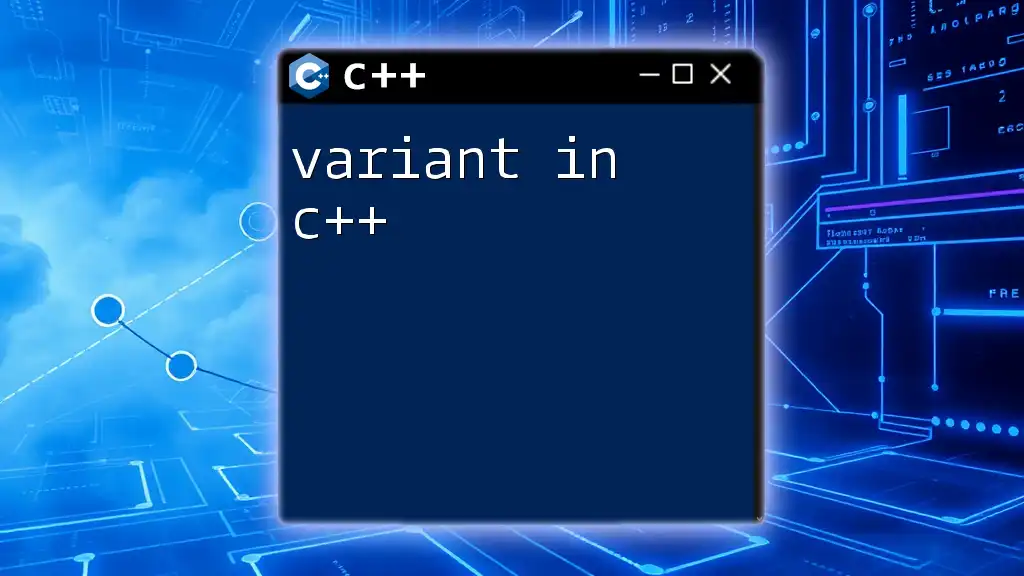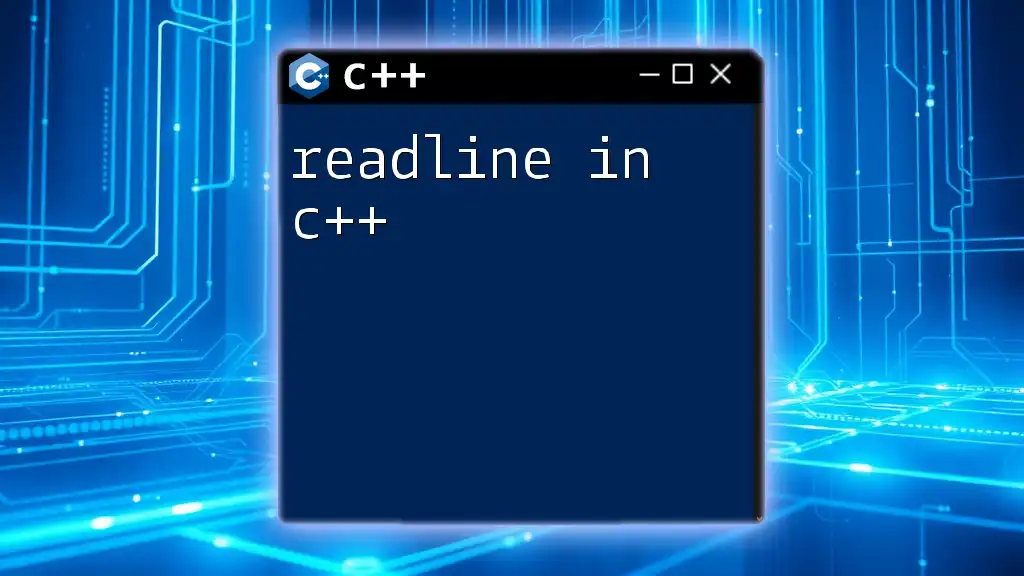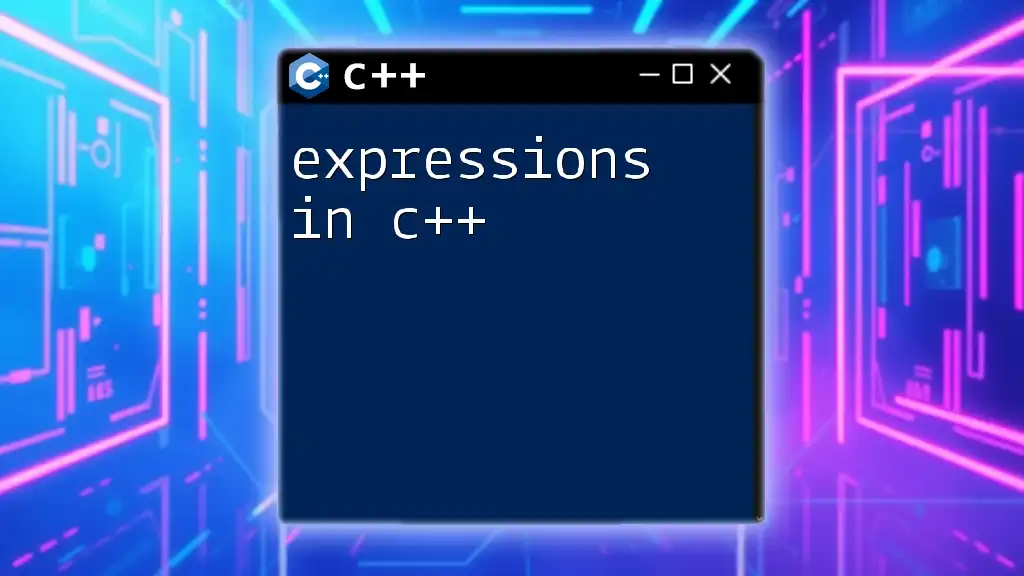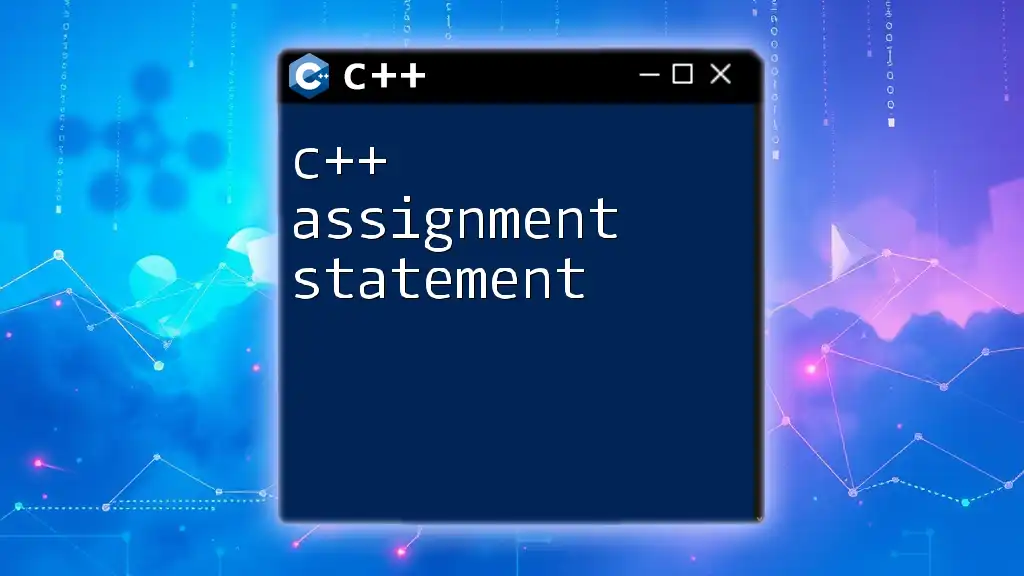In C++, assignment is the process of storing a value in a variable using the assignment operator `=`, which can be demonstrated with the following example:
int x = 5; // Assigns the value 5 to the variable x
Understanding Assignment in C++
What is an Assignment?
An assignment in programming refers to the process of giving a value to a variable. In C++, assignments are crucial for managing the data stored in variables, enabling the manipulation and calculation of values throughout the program's execution.
When you perform an assignment operation, you establish a connection between a variable and a value. This connection is maintained until the variable is either reassigned or goes out of scope. Assignments in C++ can be straightforward but can also involve more complex behaviors when it comes to user-defined types.
The Role of the Assign Operator in C++
In C++, the assign operator, represented as `=`, is the cornerstone of the assignment operation. It is used to set the value of a variable:
int a = 5; // Assigns the value of 5 to variable a
This operator works with various data types, such as integers, floats, characters, and more complex types like classes and structs. Its versatility makes it essential for variable manipulation.
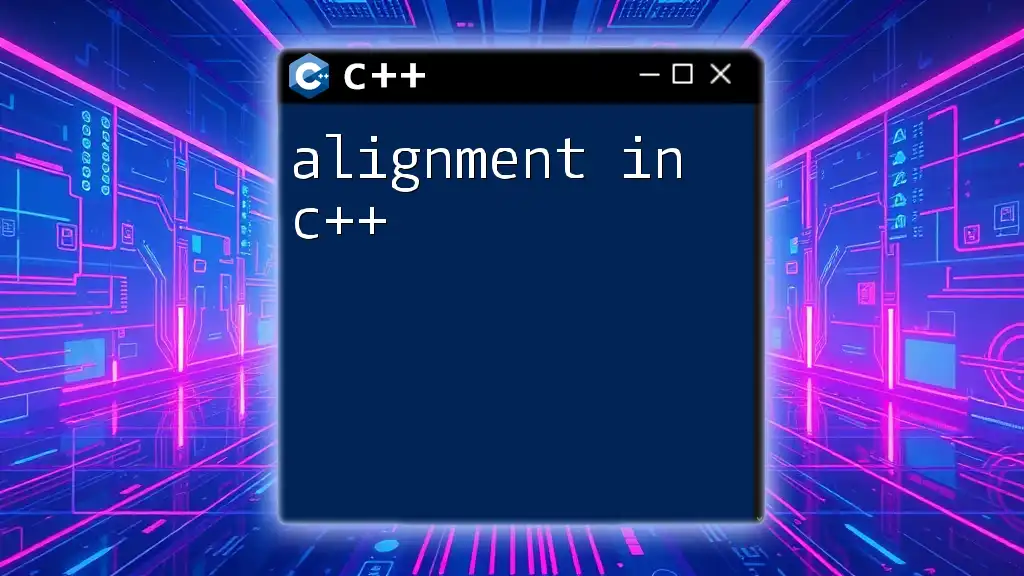
Types of Assignment in C++
Basic Assignment
Basic assignment statements in C++ are the most straightforward forms of assignments. They involve assigning a single value to a variable:
double radius = 3.14; // Assigns the value of 3.14 to variable radius
In this example, `3.14` is stored in the variable `radius`. The type of the variable must match the type of the value being assigned, which is crucial for preventing type-related errors.
Chained Assignment
Chained assignments allow you to assign the same value to multiple variables in one expression. The rightmost assignment is evaluated first and then propagated left:
int x, y, z;
x = y = z = 10; // All variables x, y, and z are assigned the value of 10
Using chained assignments effectively can simplify code, especially when initializing multiple variables to the same value.
Compound Assignment Operators
C++ provides several compound assignment operators that simplify arithmetic operations combined with assignment. These operators include `+=`, `-=`, `*=`, and `/=`, among others. For example:
int a = 5;
a += 3; // Equivalent to a = a + 3; a is now 8
Each of these operators performs a specific arithmetic operation and then assigns the result back to the original variable. Here's a quick overview for clarity:
- `+=` : Adds and assigns (`a += b` is equivalent to `a = a + b`)
- `-=` : Subtracts and assigns (`a -= b` is equivalent to `a = a - b`)
- `*=` : Multiplies and assigns (`a *= b` is equivalent to `a = a * b`)
- `/=` : Divides and assigns (`a /= b` is equivalent to `a = a / b`)
Using these operators can make code cleaner and more efficient by reducing redundancy.
Assignment in User-defined Types
In C++, assignments are not limited to built-in types; they can also apply to user-defined types such as classes and structs. By default, C++ provides a default assignment operator for these types, which performs a member-wise copy.
Consider the following class:
class Point {
public:
int x, y;
Point(int xVal, int yVal) : x(xVal), y(yVal) {}
};
Point p1(1, 2);
Point p2 = p1; // p2 is assigned the value of p1, using default assignment
In this case, `p2` is assigned the values of `p1`, and both `p2.x` and `p2.y` will be the same as `p1.x` and `p1.y`. However, it is essential to be aware of this behavior, especially when dealing with dynamically allocated memory.
The C++ Assignment Operator
Default Assignment Operator
The default assignment operator is sufficient for many use cases; however, it simply performs a shallow copy. This means that if a class contains pointers to dynamically allocated memory, the default behavior can lead to issues like double deletion or memory corruption.
class String {
public:
char* str;
String(const char* s) {
str = new char[strlen(s) + 1];
strcpy(str, s);
}
// Default assignment operator is generated by the compiler
};
String s1("Hello");
String s2 = s1; // This results in both s1 and s2 pointing to the same memory
In this example, both `s1` and `s2` will attempt to delete the same memory when they go out of scope, leading to undefined behavior.
Overloading the Assignment Operator
To avoid issues with memory management, you can overload the assignment operator for custom data types. This allows you to define your behavior when assigning objects of your class to other objects.
Here is an example of how to overload the assignment operator:
class String {
public:
char* str;
String(const char* s) {
str = new char[strlen(s) + 1];
strcpy(str, s);
}
// Overloaded assignment operator
String& operator=(const String& other) {
if (this == &other) return *this; // Handle self-assignment
delete[] str; // Clean up current resource
str = new char[strlen(other.str) + 1];
strcpy(str, other.str);
return *this;
}
~String() {
delete[] str; // Cleanup
}
};
In this overloaded operator, the existing dynamic memory is released before assigning new memory, ensuring safe and effective memory management. This prevents double deletion and maintains the integrity of the assigned data.
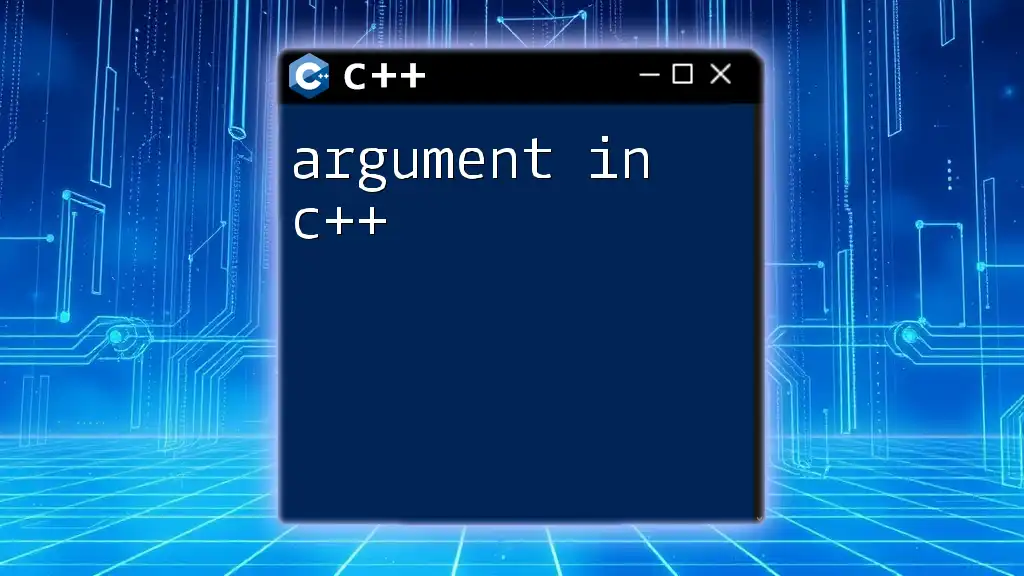
Common Mistakes and Best Practices
Common Mistakes When Using Assignments
When working with assignments in C++, several common pitfalls can occur:
-
Self-assignment: Forgetting to check for self-assignment in overloaded operators can lead to resource leaks or crashes.
-
Type mismatches: Assigning a value of one type to a variable of another without an explicit conversion can lead to compile-time errors or data loss.
Best Practices for Assignment in C++
To enhance the quality of your assignment operations:
- Ensure that types match during assignments. Leverage static typing in C++ to minimize risk.
- Use compound assignment operators judiciously to reduce redundancy while maintaining clarity.
- When working with user-defined types, always implement copy constructors and assignment operators to manage resources effectively.
- Test assignments thoroughly, especially with dynamic memory, to avoid memory-related bugs.
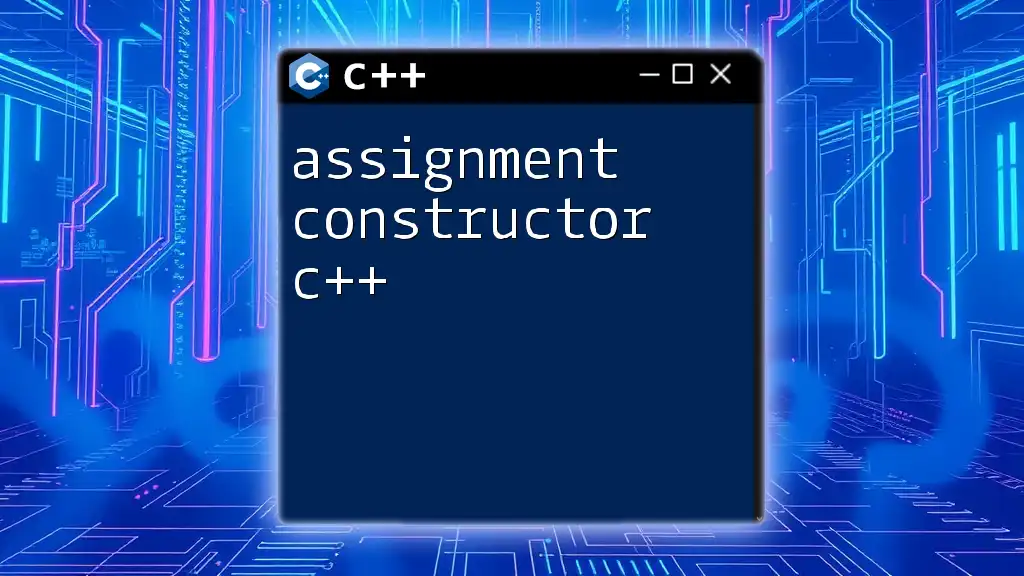
Conclusion
Recap of Key Points
Throughout this discussion of assignment in C++, we've explored the fundamental concepts, the various types of assignments, and the common practices and pitfalls. Understanding these principles will empower you to write efficient and error-free C++ code.
Additional Resources
For further exploration, consider diving into advanced materials on C++ or checking out online tutorials that specialize in best practices and coding challenges in assignment operations. Engaging with coding communities can also provide invaluable support and insight as you deepen your understanding.
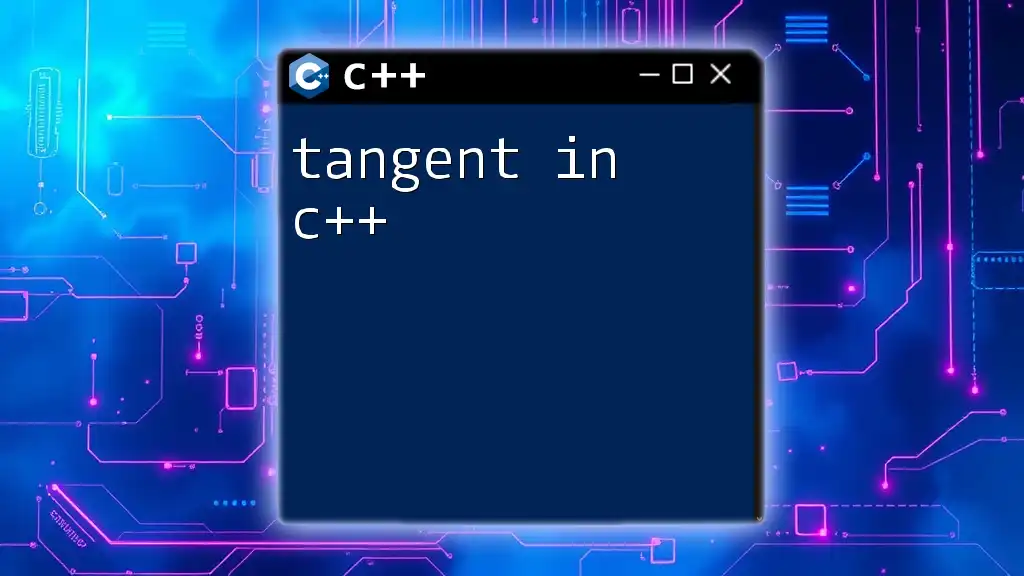
Call to Action
Now that you've gained a comprehensive understanding of assignment in C++, it’s time to put your knowledge into practice. Experiment with different assignment operations and create your custom types. Join a C++ community or forum to share your insights and seek further learning opportunities. Happy coding!

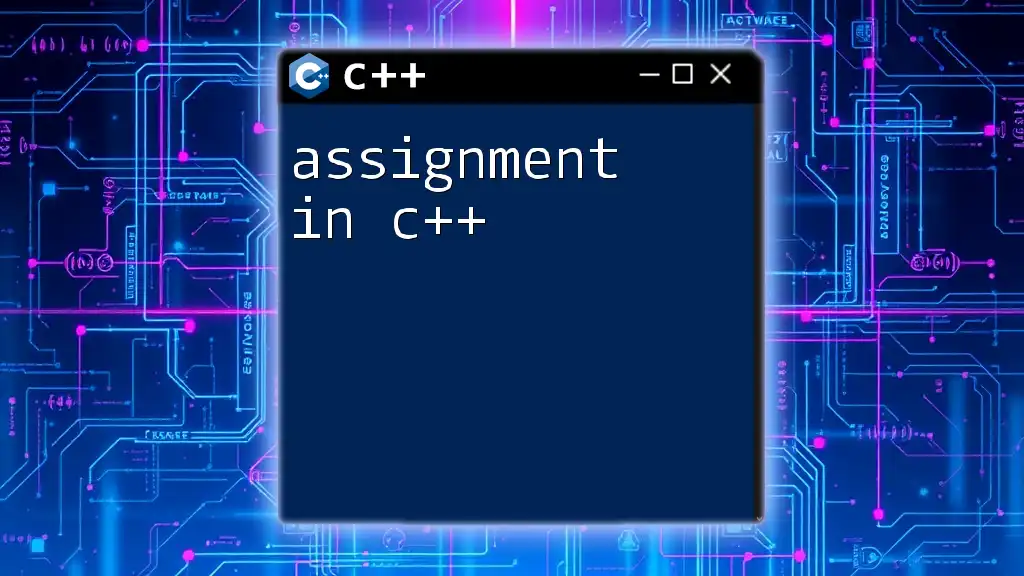





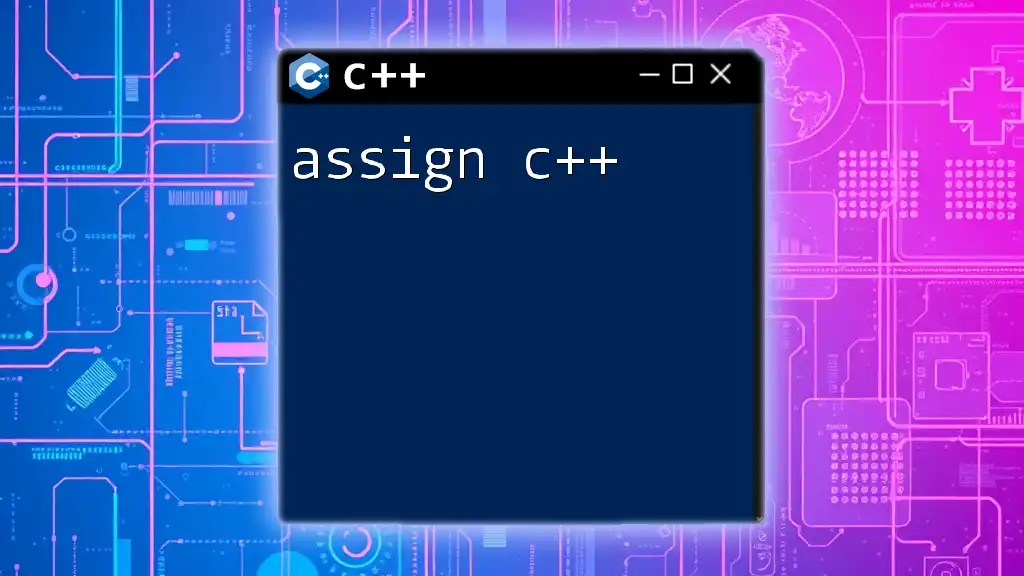
![Understanding Unsigned Int in C++ [Quick Guide] featured](/images/posts/u/unsigned-int-cpp.webp)
